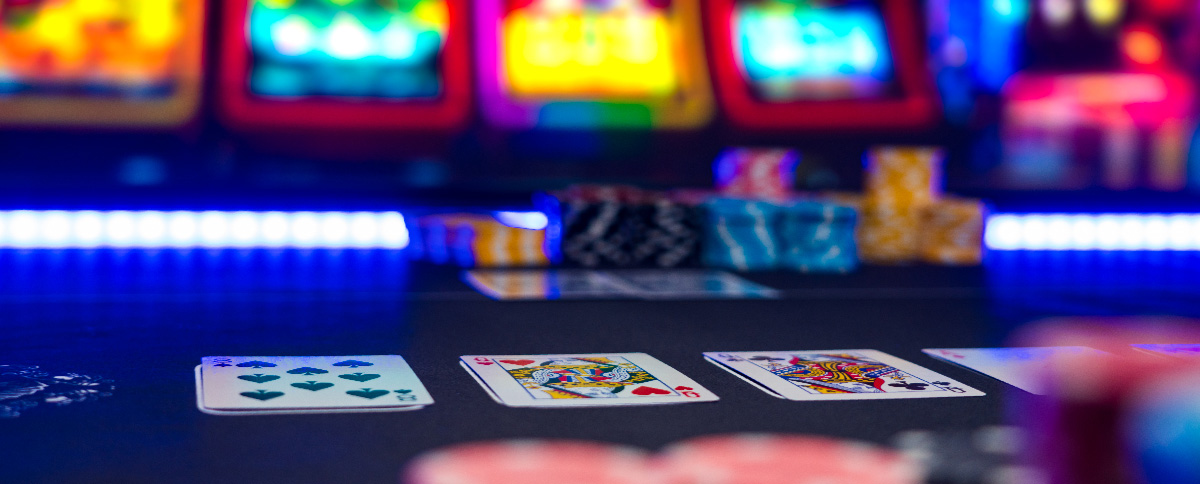Casino Games and Their Role in Cultural Trends

Casino experiences have long captured the imagination of humans around the globe, becoming an essential part of both leisure and tradition. From the shimmering lights of the Vegas Strip to the immersive experience of virtual casinos, these experiences evoke enthusiasm, risk, and sometimes even a sense of sentimentality. They are not just simply pastimes; they have woven themselves into the fabric of our lives, influencing everything from cinema and music to fashion and books.
The allure of casino games surpasses the gambling aspect, tapping into broader themes of serendipity, risk, and human behavior. As players gather around a poker table or rotate the roulette, they engage in an timeless ritual that connects with our communal desire for thrill and uncertainty. This captivation has led to the rise of numerous references in films, tracks, and gaming, showcasing how strongly entrenched these activities are in popular culture. Whether it is the high-stakes tension of a legendary heist movie or the vibrant nightlife portrayed in music videos, casino games have carved out a substantial place that reflects our relationship with reward.
Historical Impact of Gambling Games
Casino games have played a pivotal role in cultural aspects throughout history. Stemming from ancient societies, games of chance were often linked to rituals or gatherings. For example, early forms of gambling can be traced back to ancient Chinese and the Romans, where dice games and wagering on results were popular pastimes. These activities not only functioned as leisure but also as methods of social interaction, facilitating connections among individuals within societies.
As cultures evolved, so did the complexity and organization of gambling games. The creation of official casinos in the 17th century, particularly in Italy, marked a major shift in how games were perceived and structured. With specific spaces for gaming, the casino became a social hub where patrons from different backgrounds convened. This change contributed to the legitimization of the industry, transforming it from a mere pastime into an organized industry that shaped economy and policy. nouveau casino en ligne
The impact of casino games on popular culture cannot be understated. As they were brought into the limelight in books and film, games such as poker and 21 became symbols of chance, chance, and strategy. Iconic figures and narratives have developed around these activities, illustrating societal attitudes towards luck, prosperity, and vice. This fascination with gambling activities has permeated various forms of media, cementing their place in the collective consciousness and linking them to broader cultural narratives throughout history.
Representation of Gambling Games in Media
Casino games have long been a popular topic in various forms of media, reflecting both the fascination and nuances of gambling culture. Films such as Ocean’s 11 and Casino Royal portray individuals who navigate dangerous scenarios, showcasing not only the appeal of the gambling environment but also the methods and choices that come with playing popular games like Texas Hold’em and blackjack. These movies often dramatize the excitement of winning and the potential consequences of losing, encapsulating the risks involved in gambling.
Television shows have also explored the realm of casino games, often integrating them into the narrative as a setting for story progression and drama. Shows like Vegas depict the stories of gambling employees and casino-goers, highlighting the vibrant, often chaotic energy of the gaming floor. Reality shows featuring intense gambling competitions further emphasize the appeal of casino games, drawing viewers into the drama and planning involved in each game. Through these portrayals, media not only amuses but also prompts conversations about fortune, skill, and the nature of chance.
Digital games have increasingly incorporated gambling activities into their development, allowing players to experience the thrill of gambling without monetary loss. Games within the realm of online gaming often include online slot machines, online poker, and other popular casino games, creating an immersive gameplay that mirrors real-life gameplay. These digital representations make casino games accessible to a worldwide viewer base, appealing to both players who indulge and those who enjoy the rush of simulation. As a result, the representation of casino games in entertainment continues to shape cultural attitudes and cultural relevance, highlighting their role in society and social context.
Impact of Gambling Activities on Communities
Gambling activities have a meaningful effect on society, affecting various facets of societal norms and interpersonal behavior. They often serve as a venue for community engagement, where people come together to enjoy a common activity. Casino trips with friends or visits to casinos become social activities that build connections and create memories. This communal aspect boosts the fun value of casino games, making them a favored choice for celebrations and leisure activities.
Moreover, gambling activities have been portrayed in numerous films, TV series, and written works, influencing views and attitudes towards gaming and gaming. Icons like James Bond playing baccarat or the high-stakes poker scenes in films have cemented these games in the collective imagination. This depiction often glamorizes the culture associated with casino activities, attracting new players and impacting trends in both style and conduct. These portrayals can ignite curiosity and lead to a deeper investigation of the nuances of gaming.
Nonetheless, there are also adverse implications linked to the widespread appeal of gambling activities. The allure of quick monetary gain can lead to problem gambling and economic troubles for some people. The community must contend with these consequences, advocating for responsible gaming and awareness of the dangers involved. Balancing the entertainment value of gambling activities with the risks is vital to ensure that they continue to be a beneficial aspect of our societal fabric.